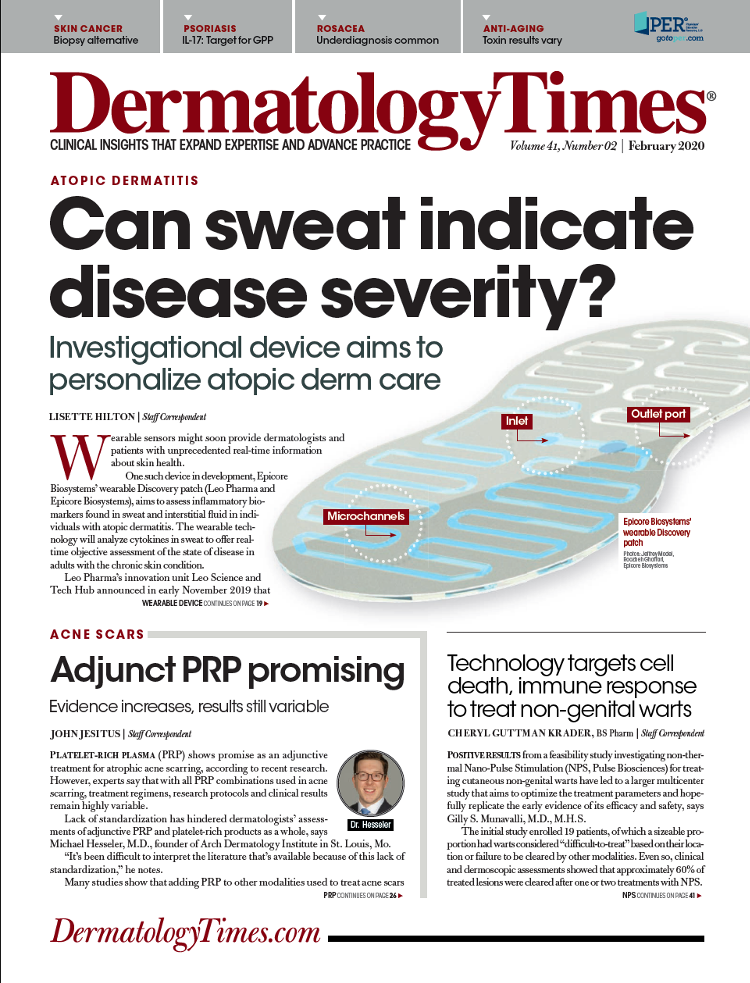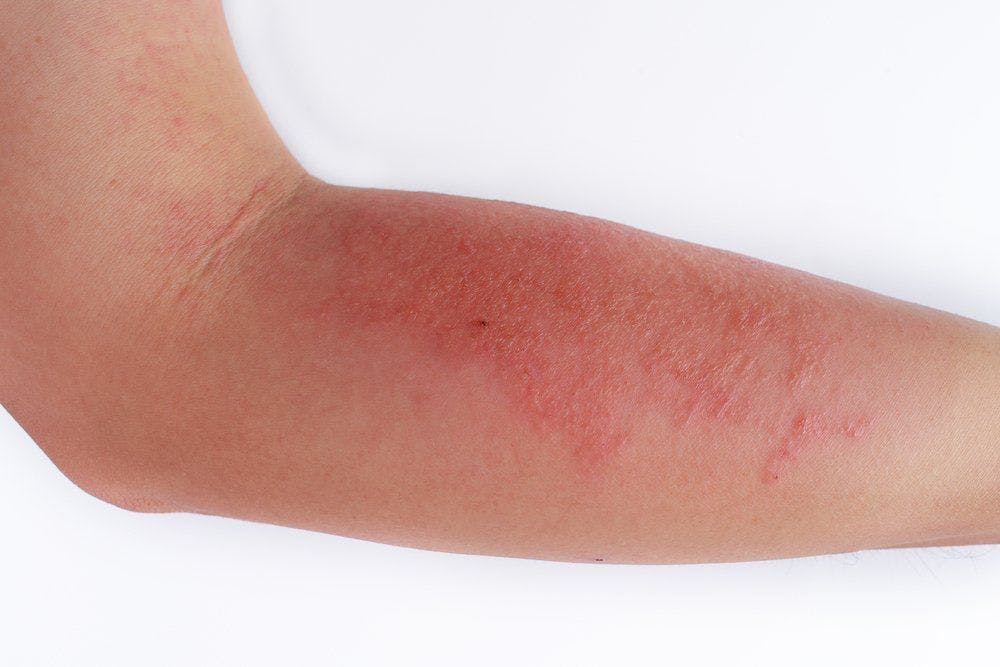- Acne
- Actinic Keratosis
- Aesthetics
- Alopecia
- Atopic Dermatitis
- Buy-and-Bill
- COVID-19
- Case-Based Roundtable
- Chronic Hand Eczema
- Chronic Spontaneous Urticaria
- Drug Watch
- Eczema
- General Dermatology
- Hidradenitis Suppurativa
- Melasma
- NP and PA
- Pediatric Dermatology
- Pigmentary Disorders
- Practice Management
- Precision Medicine and Biologics
- Prurigo Nodularis
- Psoriasis
- Psoriatic Arthritis
- Rare Disease
- Rosacea
- Skin Cancer
- Vitiligo
- Wound Care
Publication
Article
Dermatology Times
Gene expression profile testing aids skin cancer management
Author(s):
Gene expression pro file (GEP) testing outcomes have positively impacted the management decision-making process for cutaneous squamous cell carcinoma (cSCC), according to a recent study.
Dr. Litchman

Gene expression profile (GEP) testing outcomes have positively impacted the management decision-making process for cutaneous squamous cell carcinoma (cSCC), according to a recent study. Having proven its utility in melanoma, one expert believes GEP testing should be routine in the standard diagnostic work-up of challenging cases.
RELATED: GEP testing also promising in melanoma
“For more ambiguous lesions, GEP tests can be a very useful adjunct tool in separating the highfrom low-risk cSCC lesions, helping clinicians offer their patients more appropriate and measured treatment and management options,” says Graham Litchman, D.O., M.S., clinical research fellow at the National Society for Cutaneous Medicine, New York, N.Y., and co-author of the study.
Dr. Litchman and fellow colleagues recently conducted a study to assess the impact of the results of an experimental cSCC-GEP test (Castle Biosciences Inc., Friendswood, Texas) on management decisions made by dermatologists for a variety of clinical cSCC cases. For the study, 402 dermatologists attending a national dermatology conference completed an online survey consisting of a series of questions concerning three cSCC patient vignettes, each featuring different patient and lesion characteristics. The main outcomes were the proportion of dermatologists who would alter their decision to perform a SLNB or recommend adjuvant therapy and/or chemotherapy/immunotherapy with the addition of cSCC-GEP test results, as well as the proportion who would alter their recommended follow-up interval.
Researchers found that the GEP results significantly in uenced the decision-making process of dermatologists for the evaluated cases. Data showed that in the majority of vignettes, a lower risk cSCCGEP test result led to a statistically signi cant decrease in the proportion of dermatologists who would recommend radiation, chemotherapy/immunotherapy, SLNB or quarterly follow-up. Conversely, a higher-risk cSCCGEP result signi cantly shifted the management toward an increased intensity of these recommended measures in all vignettes.
RELATED: New systemic option shows promise for squamous cell carcinoma
The most commonly relied upon cancer staging tools today are the American Joint Committee on Cancer (AJCC) and Brigham Women’s Hospital (BWH) staging systems. However, even these widely used and accepted staging tools have their limitations, Dr. Litchman says, including having a low sensitivity and low positive predictive value for predicting metastasis. According to Dr. Litchman, GEP testing represents an opportunity to educate and improve the process by which dermatologists go through and figure out how to more accurately categorize and manage these challenging SCC patients.
Appropriately choosing a GEP test for further assessing the risk of a lesion under scrutiny can be challenging. Whenever clinicians are starting to incorporate new technologies, Dr. Litchman says it is important to use them with regularity. In this way, clinicians learn and get comfortable with GEP tests, and when and when not to order them for their patients.
RELATED: Does diet impact squamous cell carcinoma risk?
According to Dr. Litchman, novel cSCCGEP tests can increase the clinician’s con dence in questionable lesions and, when successful, lower morbidity, hopefully the mortality and the economic burden of some of these cancers.
“Augmenting the way that you’ve done things for years can ultimately benefit your patients and your practice. I think that as we move into this new age of advanced medicine, the management of cSCC will evolve to signi cantly improve the way we diagnose and treat our patients,” Dr. Litchman says.
Disclosures:
Dr. Litchman participated in a research fellowship, which as partially funded by Castle Biosciences Inc.
References:
Rebeca T, Giselle P, Litchman GH, Rigel DS. Impact of gene expression profile testing on the management of squamous cell carcinoma by dermatologists. J Drugs Dermatol. 2019 Oct 1;18(10):980-984.

Newsletter
Like what you’re reading? Subscribe to Dermatology Times for weekly updates on therapies, innovations, and real-world practice tips.






























